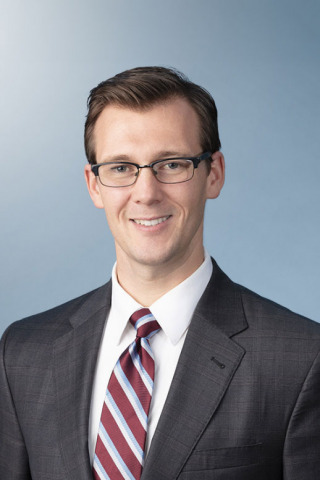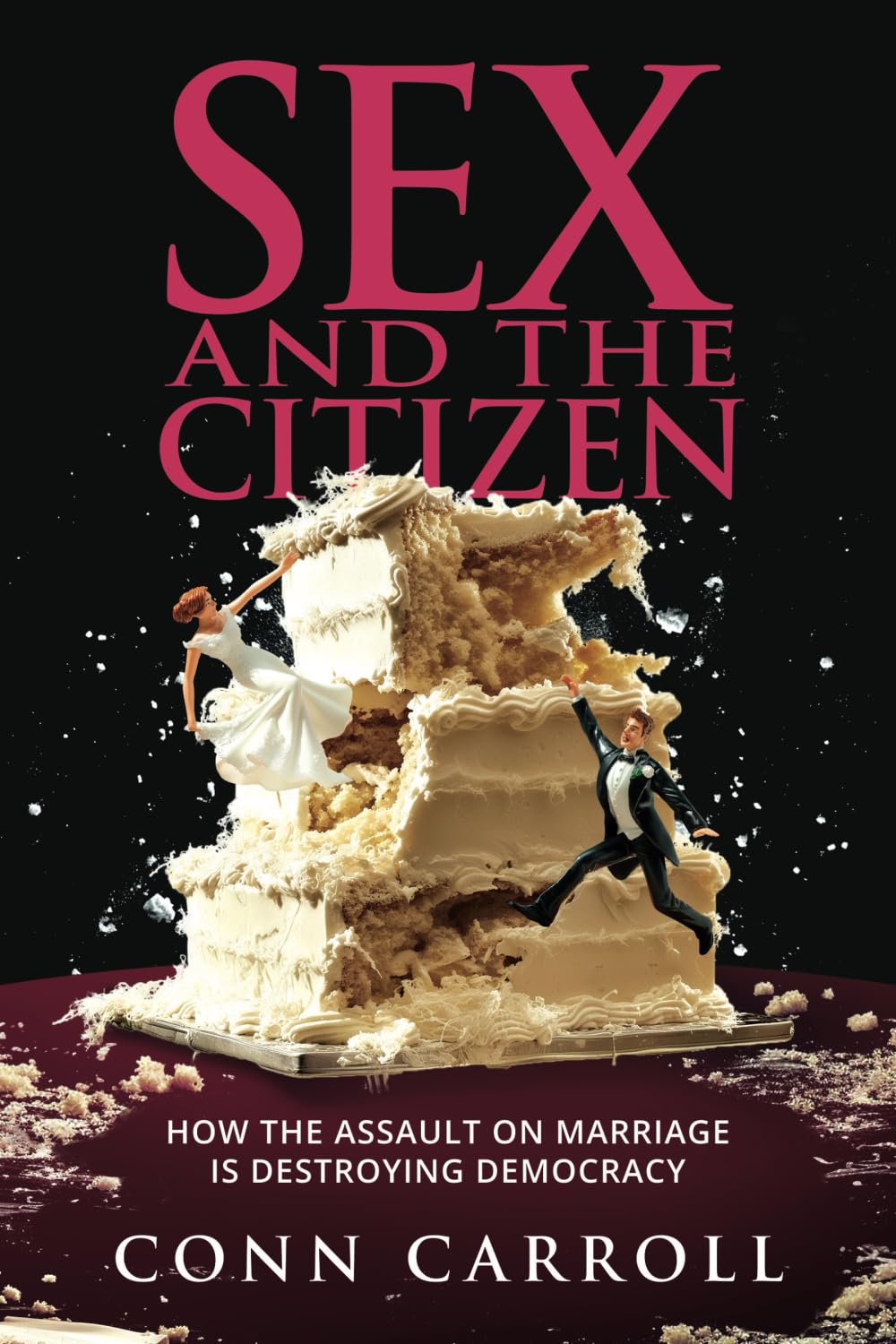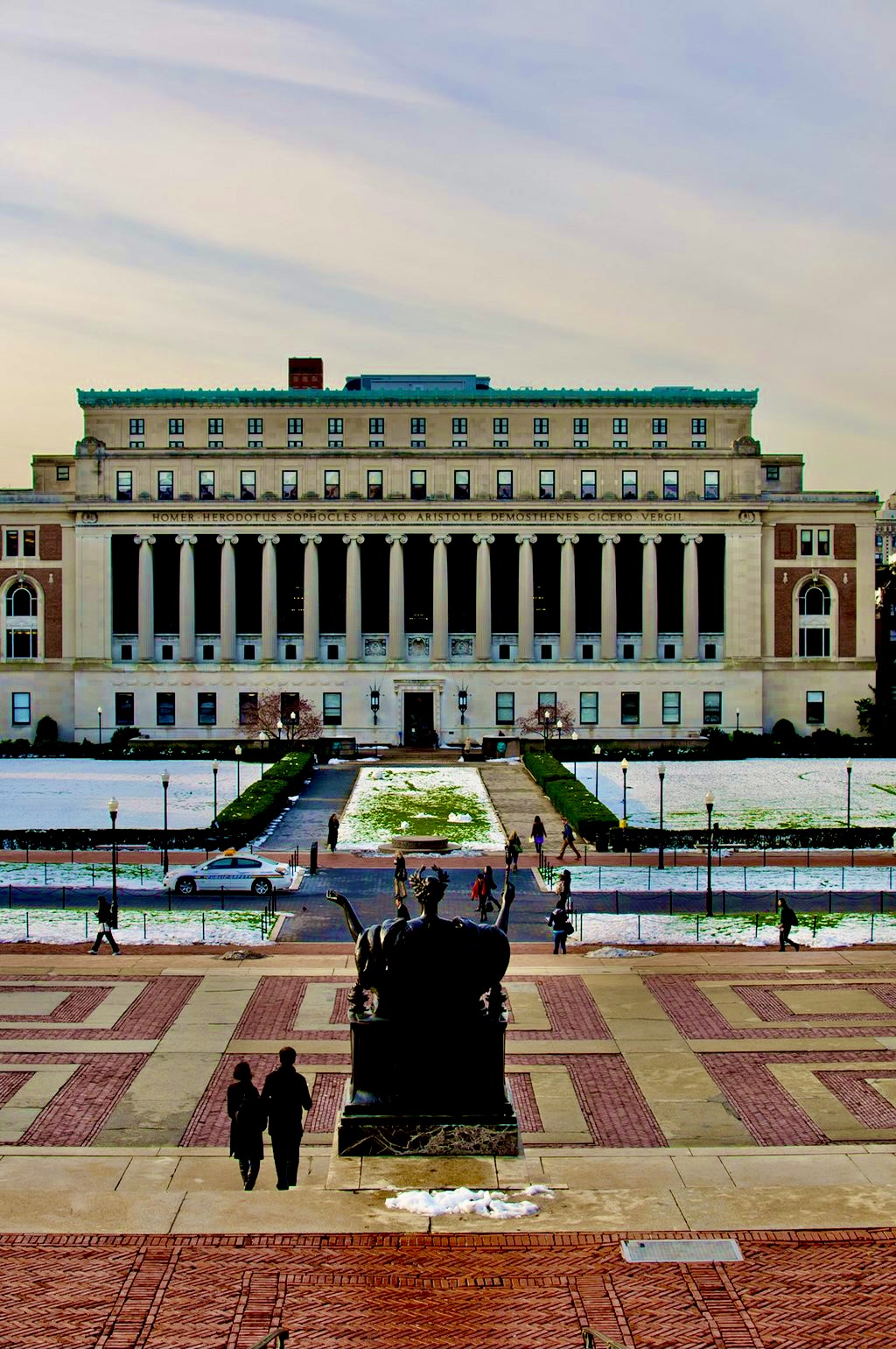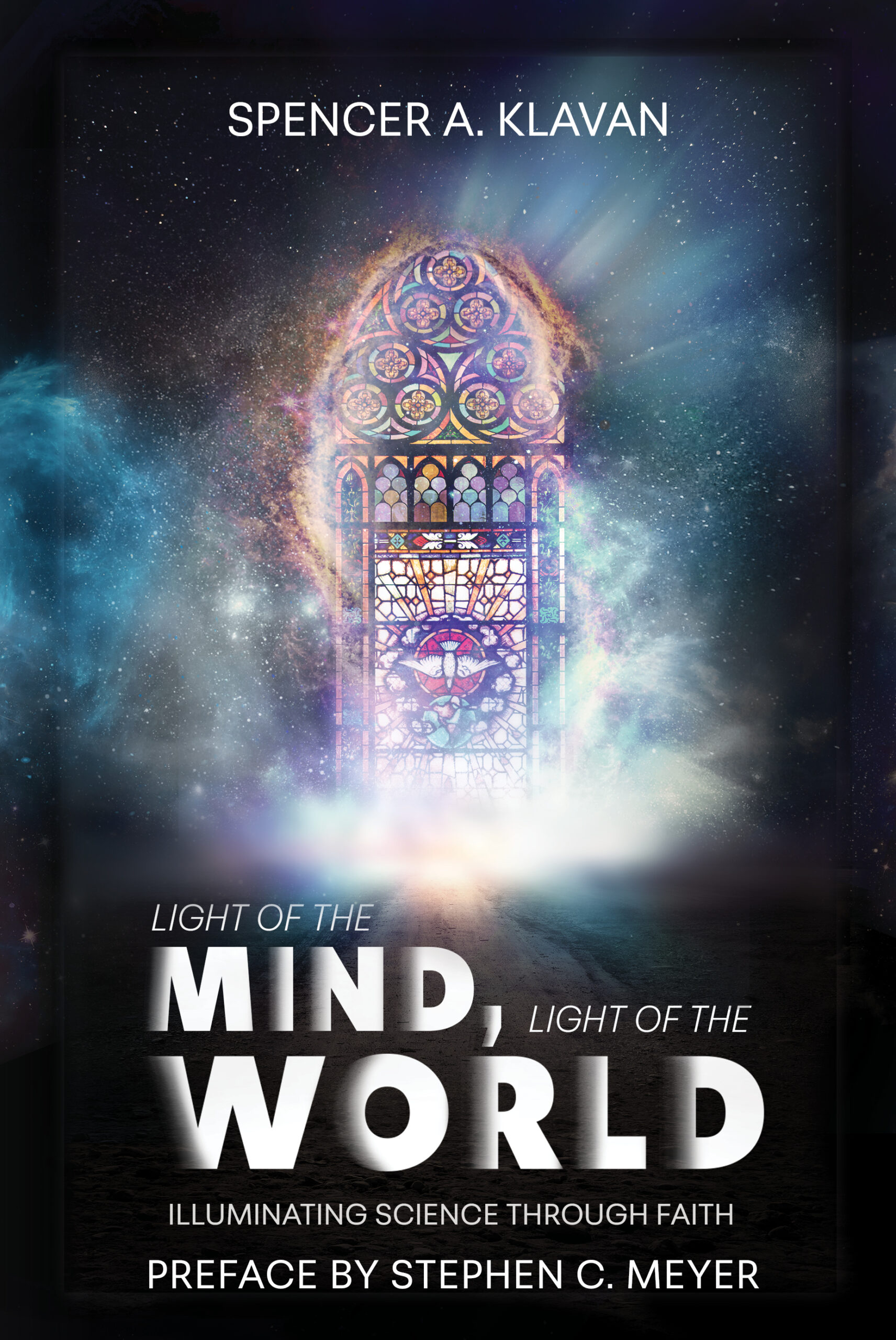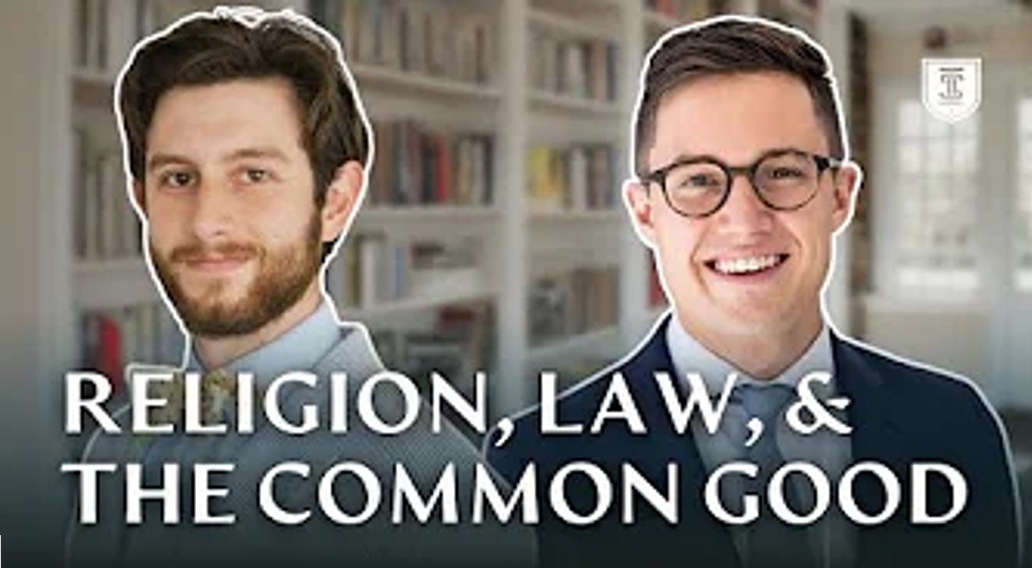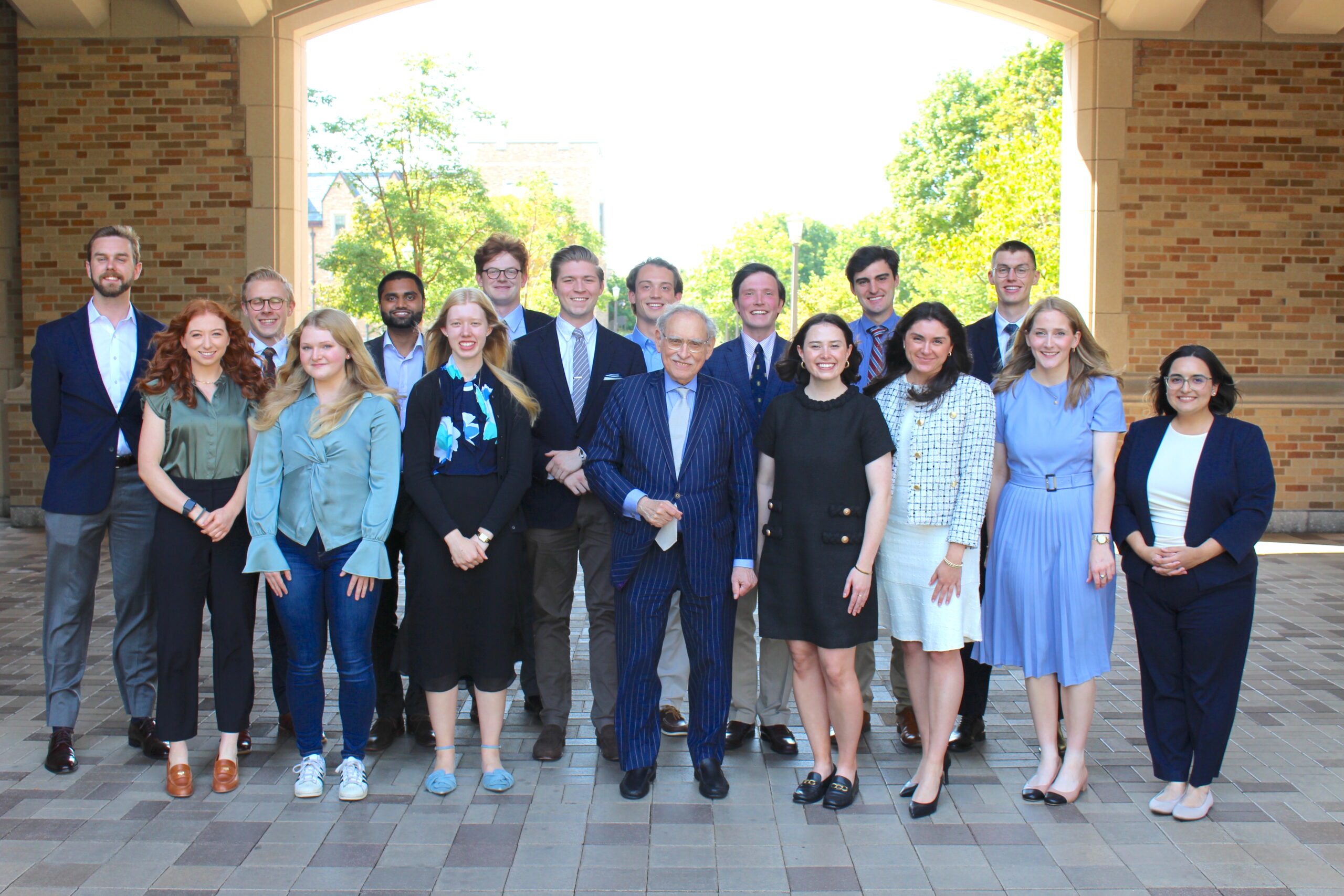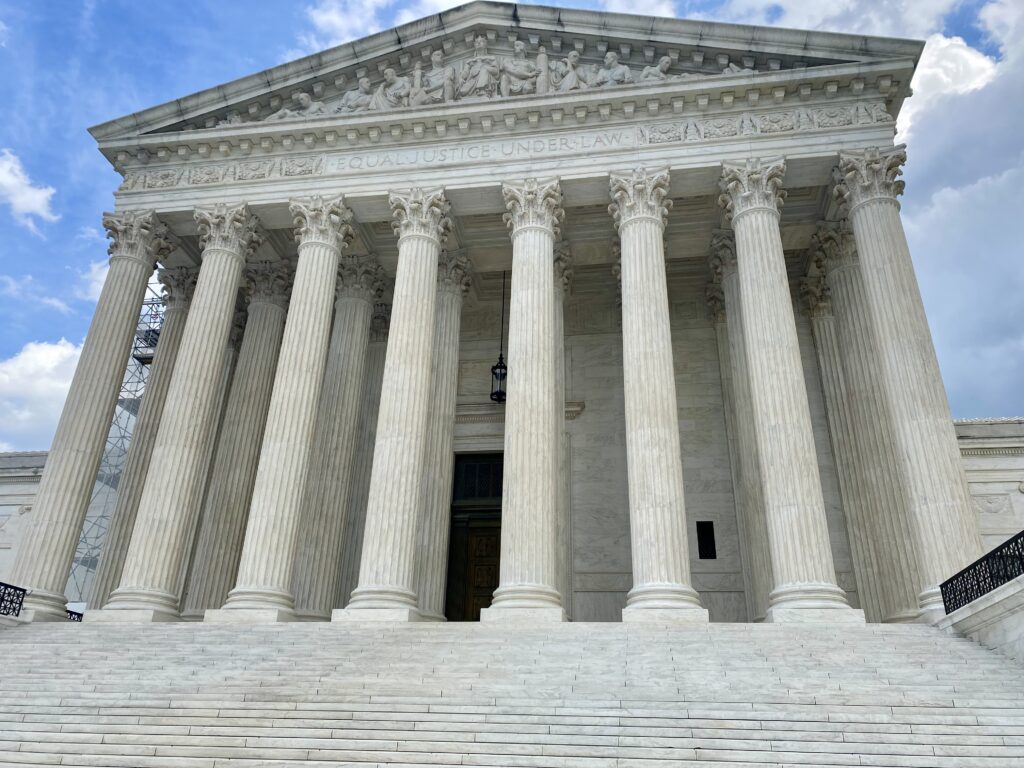
On April 24, 2024, Joshua Turner ‘15, in his role as the Idaho Solicitor General, defended his state’s laws restricting abortion in Idaho v. U.S. (combined with Moyle v. U.S.) While the Supreme Court has yet to render an opinion in the cases, it will have lasting implications for the rights of the unborn and the ability of states to regulate abortion within their own borders.
What does your role in the Idaho Office of the Attorney General encompass and what was the journey to get there like?
Currently, I’m serving as the Chief of Constitutional Litigation and Policy, and my role right now is in the executive office. I oversee most litigation in the office that isn’t criminal in nature or involve consumer protection issues, but anything that has a constitutional component or challenges an Idaho law is the kind of litigation that I’m overseeing and managing. I came to the Idaho AG’s office as the Chief Deputy Solicitor General under Theo Wold. Theo convinced me to leave private practice and work with him to build the Solicitor General’s Office, which was new to Idaho. Theo’s vision for the SG’s Office matched his warrior spirit and conservative convictions. It didn’t take long to sell me on it. And from day one, he and I entered the fight to defend the state against the barrage of litigation that it was facing.
What was the prep work leading up to arguing the case of Idaho v. United States before SCOTUS like? Did you use your colleagues or mentors as sounding boards for your arguments?
The Court granted cert right around the turn of the new year. We were on the emergency docket, some people call it the shadow docket, and the Court granted cert before judgment. From there, we had a briefing schedule that was pretty condensed, because it was one of the later cases that was granted cert. I was in DC for a good period of time before the argument in early April going through moots. I had a war room setup where John Bursch and I and another lawyer would meet for most of the day and analyze every aspect of our case, practice questioning, and develop our theory and fine-tune it. We did that, like I said, in earnest, about two weeks before the argument occurred, and it involved four total moots. One was the Georgetown moot, which is kind of known by the Supreme Court Bar as an excellent moot. They bring in excellent practitioners who are regulars before the Supreme Court, and then there were three other moots that I did. All were very different, and all were very helpful. I can’t imagine arguing before the Court without having done those moots.
What were the questions presented and what relief did you seek in Idaho v. U.S.?
The Court granted cert on whether Idaho’s Defense of Life Act is preempted by EMTALA—the Emergency Medical Treatment and Active Labor Act. We are still waiting on the Court to answer that question. We think the answer is obviously no. It’s not preempted, and it’s not preempted because there’s no conflict between the two. The federal government’s theory is that EMTALA contains an abortion mandate, which is in conflict with Idaho’s abortion prohibition; we just disagree with that first premise, that EMTALA includes an abortion mandate. We don’t think there’s any plausible reading of the statute that supports the federal government’s position. Because the district court agreed with the federal government and preliminarily enjoined Idaho’s Defense of Life Act, we are ultimately asking the Court to reverse the district court’s order and dissolve the injunction.
During the oral arguments there was a lot of talk of the “stabilization requirement” in EMTALA as well as several real examples of medical damage put forth by the justices. Did you expect this to be the case going into the arguments and how did you adapt?
We knew what the parade of horrible and mischaracterizing statements were from the other side. That wasn’t news to us. It didn’t catch us off guard. At oral argument, we just had to weather that storm. What developed, as we got into briefing and preparing for oral argument, is a better understanding of how the state and federal relationship for regulating the medical profession works. That was key for unlocking and explaining to the Court that there are really zero federal regulations that set a standard of care for the practice of medicine. That is up to states to do, because it’s a core component of the state police power. What the federal government does with these laws, like the Medicare Act and all the regulations under the Medicare Act, is provide for an administrable (some would argue that it’s not very well administered), but an administrable insurance program. Those regulations relate to how benefits are administered to beneficiaries; but none of them tell doctors in states that they must perform a specific procedure for a specific condition, because that has always been the province of states.
What does the future outcome of this case mean for other states that have similar “trigger laws”? And for state autonomy?
This is a grand experiment by the Biden administration to try to undercut Dobbs. The timing of the case just makes that evident. A few weeks after Dobbs came out, the Biden administration told DOJ: “Go and sue Idaho and see if we can create this backdoor to abortions through emergency rooms.” To me, it’s a transparent attempt to create this very broad exception for abortions. In Idaho, the people have been very careful not to allow for an open-ended health exception. They have a life exception, and the reason that they have a life exception and not a health exception is because it gets very hard to administer a reliable constraint that protects unborn children when abortions are available for “health” reasons. Idaho has determined that saving the mother’s life is the only cause that is enough to override the unborn child’s right to life. What the Biden administration, we think, was trying to do was essentially rewrite Idaho law to allow for this much more open-ended health exception.
So, what are the implications? The implications are that this is damaging for states that want to have a life exception rather than a health exception, because now all of their laws are going to be preempted. Even the states that have health exceptions and not just life exceptions would be impacted because the federal government’s position would result in a much broader health exception, such as encompassing mental health conditions, than state laws defining the scope of a health exception. So, there would be preemption to varying degrees, I think, for every state abortion law. Now the broader concern, is that you have an administration that comes in and flips a 30- to 40-year-old statute on its head and uses it, weaponizes it, for a purpose that it was never intended. In fact, if there was any intent regarding unborn children under EMTALA, it was to preserve their life, not to end their life. The type of mockery it makes of written laws, I think, is incredibly concerning. This is a case about defending the rule of law and what that means for our society.
Is this the first time, as you would see it, that EMTALA has been utilized in this manner against a state?
Yeah, this, as far as we can tell, is the first time the federal government has ever argued that EMTALA preempts state law and requires any specific treatment on anything, let alone abortion. The federal government has never taken the position that EMTALA tells states, or hospitals, they have to provide these procedures, even in the face of state law that says certain medical procedures are illegal. It’s never been read that way, it’s never been applied that way, and it’s never been enforced that way. The enforcement—and we looked through tables and tables and tables of enforcement actions against hospitals—always boils down to: you’re offering this treatment or procedure to a patient, but you’re denying it and turning away or dumping an uninsured patient. That’s an EMTALA violation. You can’t do that, and that is the purpose of EMTALA. That’s why it’s often referred to as the “anti-dumping statute.”
What did the process of generating amicus support for the case look like on your end?
I’ll say that it is a very coordinated, intentional effort, and we are lucky to have a lot of good friends who stand ready to help with amicus support. Amicus support is incredibly helpful, and we are very intentional in reaching across and making those contacts and coordinating the amicus effort so that it is maximally beneficial for the Court and for our case.
How has your training with JWI and your personal understanding of the Natural Law shaped your jurisprudence?
It would be hard to explain all the ways in which the lawyer that I am today has been shaped through my time with the James Wilson Institute, or even before JWI, by my time at Liberty, where every aspect of my study of law was sort of in the petri dish of Natural Law. As a Christian, my highest authority is not my own truth, but God’s truth. So, it’s been incredibly helpful and beneficial, particularly in the EMTALA case, because when you have a moral foundation, you have coherence that the other side lacks or is unwilling to incorporate into its legal argument. The Solicitor General, Elizabeth Prelogar, is an incredible advocate, and most everybody recognizes that. But if you listen to the substance of her EMTALA argument, you’ll hear that it is devoid of any coherence, and it came through in the argument in several ways. She offered several responses that we knew she’d be forced to make that undermined her case. One had to do with conscience rights, which the federal government just could not take a consistent position on. She knew that the Court would not tolerate a reading that didn’t accommodate conscience rights and so she conceded that EMTALA did not force individual doctors or hospitals to perform abortions in violation of their conscience. But by making that concession, she really, I think, killed the coherence of the argument that she was advancing.
When you adhere to Natural Law and when that is your foundation, everything has to work together coherently. I mean, that’s the whole point of the Natural Law methodology. So, I think she was punching with one hand tied behind her back. I was not, because Natural Law is a sort of meta structure that employs all of the common sense and tools of logic that appeal to man’s reason; and it engages a moral language that is really key to that. I think, in our EMTALA argument, being able to talk about unborn children as humans with dignity, demanding respect and honor, allowed us to answer the hard questions. The hard question from Justices Sotomayor and Kagan was “the woman’s going to lose her fertility and the state is disregarding her bodily autonomy. How is that right?” If you don’t (speak about the unborn), if you’re not willing, to access a moral language and just put a stake in the ground and say, yes, but there are two lives here, and that’s why the mother’s interest is not paramount and controlling in every circumstance, then I don’t know how you answer that question. When I was getting grilled by the justices on the left, I didn’t view their questions as terribly difficult to answer because of my willingness to rely on moral theology.
Were you familiar with Natural Law principles before becoming a JWI fellow and why do you think such programs are beneficial for young lawyers?
Yeah, I probably had more of a background in natural theology or in Natural Law than most people who attend the James Wilson Fellowship, but it was still incredibly eye opening to me. Professor Arkes is brilliant, and he’s got a unique gift in communicating the important truths that are part of his program. My understanding is that the faculty has only gotten better since my time, although I will say my year, we heard from Professor Dan Robinson, who is irreplaceable. So, I was very lucky to be exposed to him through the James Wilson Fellowship.
The JWI program is essential to expose young attorneys to the reality that the dominant conservative legal jurisprudence right now—originalism in its various forms—has significant limitations. The originalism framework answers certain legal questions very well, but it is simply incapable of answering some of the most important and foundational questions. And I’m convinced that judges necessarily engage in natural law reasoning whether they know it or not. It is inherent to judicial decision making. The sooner lawyers understand that, and the better they get at engaging courts on that level, the more effective conservatives will be able to defend and advance virtuous laws. There are many limitations in the prevailing conservative legal theory and if the conservative legal movement is going to advance to a satisfying place, Natural Law is a necessary component of that jurisprudence.
Are there any ending messages you would like to impart either to future JWI fellows or young lawyers in general who are seeking to uphold these principles in a profession that has become somewhat hostile to Natural Law theory?
I would encourage these attorneys to look for an opportunity to go out and serve the public and put these things you’ve learned, these important truths, into practice. Private practice is not a bad thing. I came from private practice, but I had to leave private practice in order to have the opportunity that I had this past term. I didn’t leave knowing I was going to have that opportunity and I could not have planned for a Supreme Court argument, but the willingness to go and serve a greater cause opened the door for that opportunity. I think young attorneys need to look for that and selflessly use their training, and the training that they’ve been given by the James Wilson Institute, to serve those around them.
